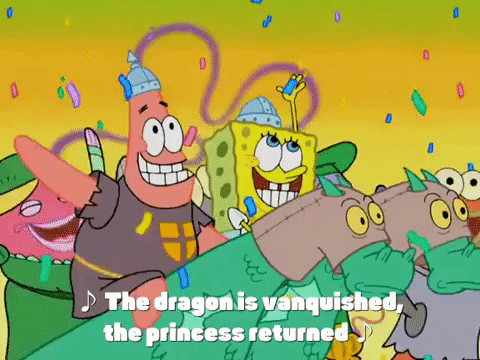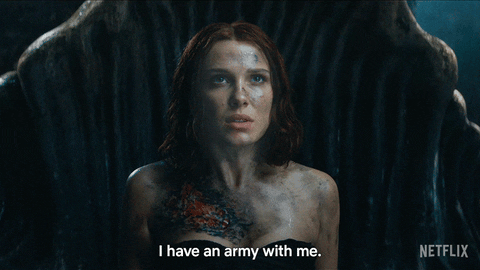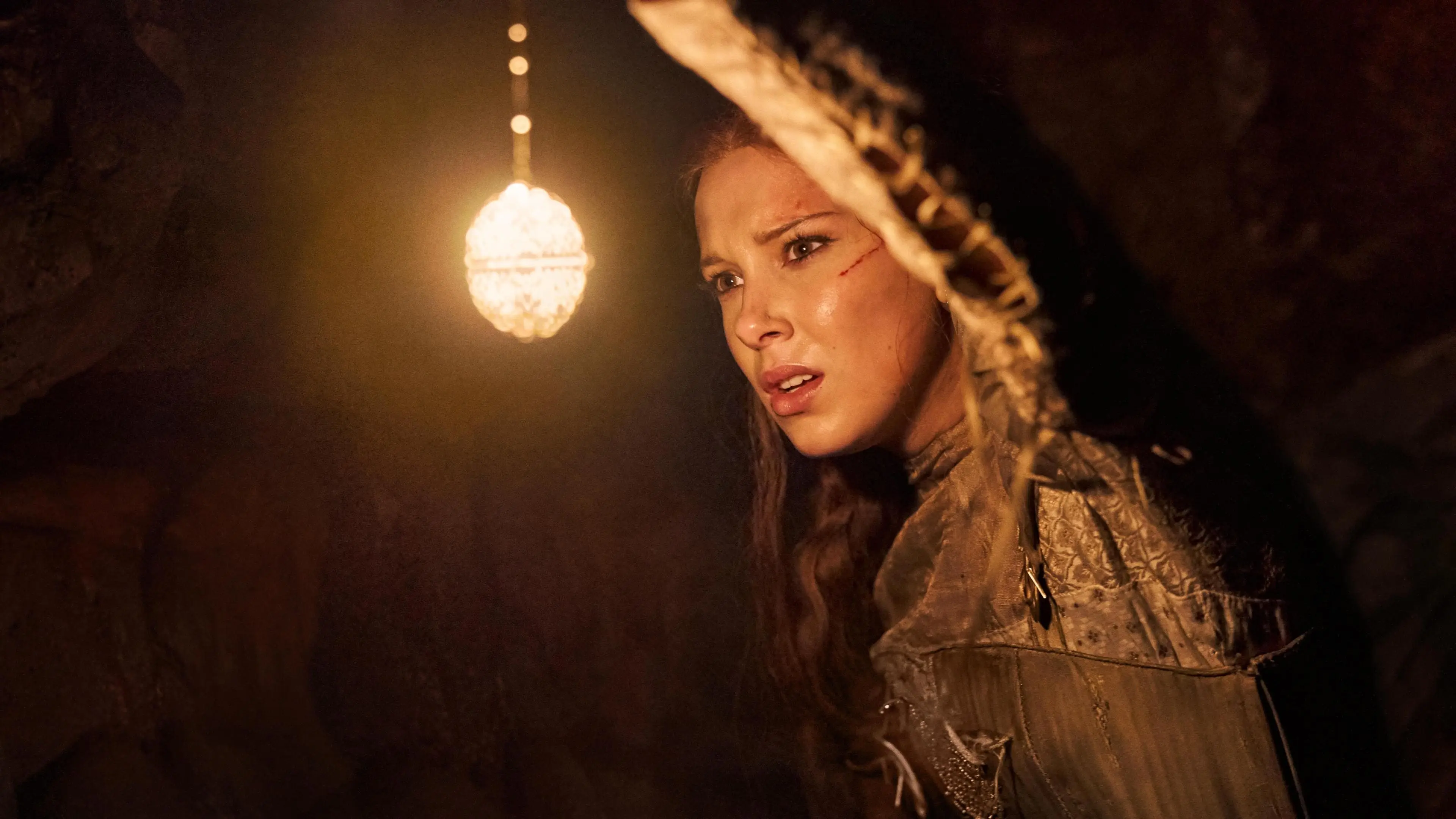Like any other Gen Z girls, my go-to bedtime stories during childhood were classic fairy tales like "Cinderella," "Snow White," "The Little Mermaid", "Beauty and the Beast" etc. Sure, they were captivating and imagination-sparking to young girls, but they also left us with some serious princess stereotypes that we've been trying to shake off ever since. That's why I'm pumped about an increasing number of fairy tales being retold hitting the scene, with a conscious effort to break stereotypes about women and address their true realities.
And "Damsel" is one such work.
Princesses, princes, dragons...
Bam! Instant story. These three keywords are enough to conjure up a familiar tale in everyone's mind. And I bet there are only two versions: either the prince swoops in to save the princess from the dragon, or the dragon is actually a cursed prince who needs a true love's kiss (think "Beauty and the Beast").

Then what about "Damsel"? The combination of the three key words is different. The prince deceives the princess, offering her as a sacrifice to the dragon. When the princess realizes that both she and the dragon are victims, she teams up with the dragon for revenge against the prince and his family. This, according to director Juan Carlos Fresnadillo, was the biggest challenge: "Telling a tale that everyone thinks they already know in a way that felt like it meant something."
Now you know "Damsel" isn't your typical fairy tale. But how exactly? Firstly, our Princess Elodie isn't the passive damsel in distress waiting for a hero. While Cinderella waits for the prince, Snow White and Sleeping Beauty awaits their awakening kisses, and Belle and Ariel, though stronger, ultimately falls into sacrificial roles, Elodie is taking charge, saving herself, and flipping the whole damsel trope on its head.
This isn't that new actually. A female character without agency nowadays would have incurred immediate backlash. More refreshing are the changes to the prince, dragon, and the princess's stepmother. The prince isn't just some charming dude – he is a straight-up deceiver who will toss you off a cliff if it suits him. The dragon? Not evil by nature, just seeking revenge for some serious family drama caused by the prince's ancestors (They killed the dragon's three and only daughters. In revenge, the dragon demanded three sacrifices from each succeeding king). And the princess's stepmother? She does not concot any wicked schemes to trade the princess's life for wealth, but instead advises her to be careful about marriage. It is her father that is blinded by his greed for power and benefits, though he at last realize his faults.
The prince's mother might seem like your standard evil stepmother, but there's more to her than meets the eye. Imagine if Elodie wasn't one of the three sacrificial princesses but the lucky fourth one, she would probably end up like the prince's mom, inheriting all those old-school values and keeping the patriarchy alive and kicking. So yeah, she's not just a one-dimensional villain; she's another possible reflection of Elodie, warning us of another trap set for women.

Fairy tales are all cute and innocent when we're kids, but as we grow up, we start seeing the deeper layers. Those old princess stories? They kinda did a number on us, pushing this whole 'damsel in distress' thing and making marriage seem like the ultimate goal. Many of us soaked in these narratives for decades and are now striving to shed these ideologies. Such efforts require courage and determination. But girls of the new generation are not buying into that anymore. We now have "Damsel" - it points out directly "Hey, marriage isn't all rainbows and unicorns for us ladies. It could be a deception, demanding a woman's sacrifice for the husband's family and interests."
From a cinematic standpoint, "Damsel" isn't outstanding. It's more like your favorite guilty pleasure - simple, maybe even a tad boring, yet it holds significance. It extracts elements from familiar old materials but rearranges them to directly convey feminist theme. Perhaps for feminist expression, retelling is already a meaningful step. As director Fresnadillo puts it, "We're owed a new fairy tale." I'm glad that, at least in the realm of film, new-generation girls have more choices in princess stories.
And let's not forget about the lead actress, Millie Bobby Brown, who is also the executive producer of "Damsel." Rising to fame as Eleven in "Stranger Things" and acclaimed for her acting prowess in multiple works, she was named one of Time Magazine's 100 Most Influential People in 2018, the youngest ever on the list. At just 20 years old this year, she's already an icon for many girls. I believe she couldn't be more perfect for the princess who takes on dragons and princes.



 Log in
Log in

No comments yet,
be the first one to comment!